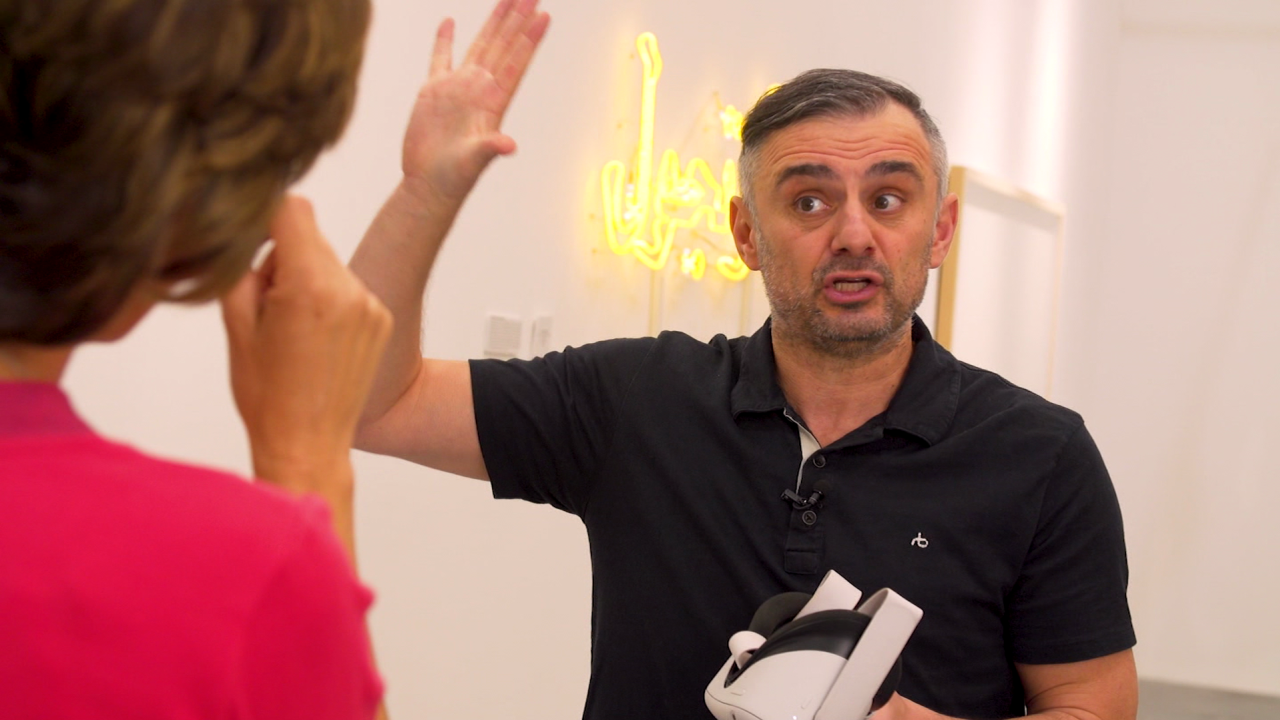Editor’s Note: Jane Thomason is a Dubai-based author on frontier technologies and social transformation, whose books include “Applied Ethics in a Digital World.” She is an editorial board member for peer-reviewed journals “Frontiers in Blockchain,” “Global Health Journal” and “Journal of Metaverse” and chair of Kasei Holdings, a Web 3.0 investment company. The views expressed in this commentary are her own.
The metaverse is here, it’s big and it’s not going away. Collins Dictionary listed metaverse as one of its top 10 words of 2021 and a recent survey found that 74% of the public had heard of the metaverse in March 2022, up from 32% in July 2021.
An immersive, always-on experience, the metaverse is an amalgamation of blockchain, virtual reality, augmented reality, mobile, and computer technologies. Large sums of money are being invested, and over 160 companies are competing to build the most popular metaverse across areas as diverse as gaming, commerce, real estate, entertainment, socializing, health, education and government.

Governments are exploring how they can use it to provide better services more conveniently – for example the South Korean capital Seoul plans to create a metaverse for its municipal administration. In healthcare, Apollo Hospitals Group, for example, plans to engage users in virtual reality-mediated activities to empower them to regulate emotions. Metaverse education will revolutionize how people learn. Astronomy students will step into a Star Trek-style transporter and take a spacewalk, while history students could travel in a time machine.
It’s both attractive and scary to imagine visiting different metaverses in the form of an avatar, which could be a replica of oneself. You could send your avatar clothes shopping; it could try on outfits to find the perfect fit, which can then be ordered and delivered to your home. For the vulnerable, the disabled, and the elderly, who may not be able to leave their homes, the attractiveness of being able to go to a virtual space, receive services, meet people, travel, and be entertained, is compelling.
But what of the downsides? The problems of the internet will be amplified in a metaverse environment. Here are some of the biggest challenges.
Harm mitigation
The accelerated growth of immersive technologies will amplify biases, produce alternative realities and affect human emotions. Monika Manolova, a digital ecosystems expert in Bulgaria, has warned of the addictive nature of immersive environments as forms of escapism. The lines between the real and digital worlds are becoming blurrier with the convergence between social networks and geo-locations.
The European Parliament reports that, if used to excess, the metaverse can cause mental health problems and reduce physical activity. Emotional vulnerability could lead to a situation where the perceptions from an immersive experience could alter or completely transform a person’s life. People who use immersive technologies, such as VR headsets, can become disoriented and oblivious to real-world hazards, which could result in injury.
Intellectual property rights and protection
Determining jurisdiction in the metaverse will be tricky. Does it apply to the user’s location, the location of the avatar, or the location of the computer infrastructure? Intellectual property will be a challenge in the metaverse because content is distributed and replicated across decentralized networks.
Security
The multi-layered structure of the virtual environment could enable bad actors to hide behind encryption and untraceable NFTs (non-fungible tokens – which are unique digital assets), making it difficult to identify them and take action.
Related: Non-fungible tokens explained
NFTs will be the linchpin of the metaverse economy, enabling authentication of possessions, property and identity. Yet the European Parliament highlights regulatory risks for NFTs – for example, the difference between owning an NFT and owning the right to exploit a copy of a copyrighted digital work.
An NFT cannot exist without an underlying digital asset (for example, an artwork), and copyright protection only exists for the asset to which the NFT attaches, not for the NFT itself. There is often a loose link between an NFT and the asset it refers to.

Counterfeiting is an emergent problem; there are currently no standards and regulatory oversight of NFTs is lagging.
The metaverse provides the potential for inadvertent or deliberate automation of unethical conduct at scale, and a plethora of ethical questions arise.
How can we assure informed consent when it comes to personal data?
Ideally, consent should be informed, but the immersion experience in the metaverse will require the integration of access points – for example mobile devices connected to other devices, like wearables, wallets and goggles, which may share metadata about the user profile, device type and geo-location without consent. This could include tracking body movement, brainwaves and physiological responses through wearables.
Data collection will be involuntary and continuous, making informed consent almost impossible. How do we avoid a scenario where people can be monitored, manipulated, and monetized?

Should avatars have rights?
Some academics suggest that people in virtual worlds have rights to freedom and wellbeing and have moral rights and obligations similar to those of their real-world counterparts. That premise could raise some intriguing questions – for example, if you kill people in a virtual world, are you a murderer?
Avatars could amplify negative aspects of social network engineering, like groupthink, silos and hate chambers. Research has found that self-representative avatars remain an anchor in the real world. At the same time, more abstract representations allow users to be completely disconnected from reality and to live new, potentially harmful experiences.
Should children be allowed in the metaverse?
The metaverse promises children a unique and rich experience. However, in a hyperrealistic, immersive environment, the difference between what is real and what is augmented can be hard to recognize, as the technologies engage sensemaking experiences that affect brain, memory and cognition. This could result in harmful side effects for vulnerable children if they are confronted with abuse, harassment, bullying, racism and pornographic content. How do we know which users are children? How do we protect them?
How can we incorporate core ethical values into the metaverse?
Can we ask the creators of the metaverse to consider proper safeguards? One possible solution could be to connect developers more closely to the ethical outcomes of their decisions and algorithms, and encourage the community to take a more active and demanding stance on ethics.
As we go into this enticing, unique, immersive world of the future, we must build purposefully to account for the ethical questions already emerging. The metaverse will transform humanity at a depth and scale seldom seen.
Life in the metaverse could be fulfilling and rewarding, create social purpose and provide new means of economic activity. But will we be able to influence the digital overlords, gaming titans, and Web 3.0 innovators who are racing to build metaverses, so we get the ethics right?

